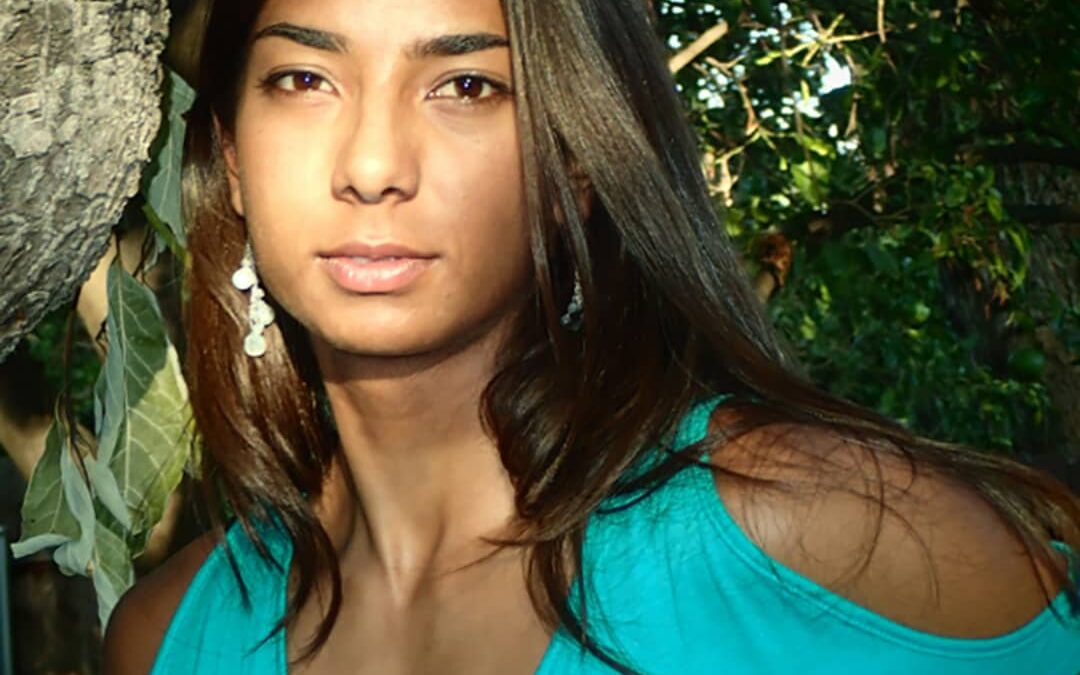(Composer Juhi Bansal was commissioned by Virginia Symphony Orchestra to create a new classical music work — To Call the Rain.)
By Montague Gammon III
The Virginia Symphony Orchestra again gives Hampton Roads audiences the honor of being the planet’s first to hear a work by an important and, in the words of VSO Music Director and concert conductor Eric Jacobsen, “incredible younger composer.”
That’s To Call the Rain, by Juhi Bansal, which opens VSO’s early March concerts in Norfolk, Newport News and Virginia Beach. Bansal’s world premiere is paired with Mozart’s popular “Paris Symphony” and Carl Orff’s masterpiece, the stunningly powerful and eminently recognizable Carmina Burana.
To Call the Rain gets its title and musical content from a “tradition in Hindustani music,” the composer’s program notes say, “of music that – when played with intention and inspiration – holds the capacity to invoke rain.”
Her composition “imagines this ritual in orchestral sound…a melodic voice grows from gentle patter to downpour, as movement and flow, drops and ripples and lush textures fill the space.”
The Virginia Symphony commissioned To Call the Rain, Jacobsen said, as part of “a conscious decision that every year” new works should be “on the forefront of what we do, together with works like Carmina and Beethoven Nine and all these great works that we’ve been doing for all the right reasons.”
Speaking of established works, Mozart wrote his Symphony No. 31 in 1778, at the age of 22, when job hunting in Paris; hence the nickname. First privately premiered, then publicly, it was roundly well received, but still did not win him employment.
It remains a crowd pleaser par excellence today, and a worthy part of Mozart’s catalogue. Commandingly rhythmic and forcefully energetic from its opening notes, it is equally captivatingly in its slower, calmer passages. Jacobsen briefly described it as “a lighthearted work in some ways.” At 20 minutes or less, the Paris Symphony is surprisingly short but thoroughly fulfilling,
That’s the undercard. The main event is Carl Orff’s Carmina Burana, music written in 1935-36 with lyrics from the 11th to the 13th Centuries.
Carmina is a mammoth piece, scored for multiple timpani and percussion, a host of extra brass, woodwinds and strings, two pianos, three soloists plus a pair of choruses or choirs, one comprised of adults and one of children.
Orff chose 24 poems from a collection of some 254 texts in a 13th Century manuscript that had been discovered in a Bavarian monastery in 1803. That clerics, even lapsed or student clerics, along with a motley but church-connected crew, should write stuff that acknowledges the inexorable potency of fate, and which is also celebratory of gluttonous gustatory bounty, boozing and bawdiness – though tame in expression by post printing press and certainly internet standards, or lack of standards – might seem odd at least, but…priestly celibacy was not universally required during those times, and the monasteries did bequeath champagne and liqueurs and distillation to thirsty and escapist humankind.
Furthermore, evolution has determined that the pursuit of potentially reproductive activities will remain in the forefront of young, and some not so young, adult minds of both genders, or as Jacobsen rephrased that thought, “Evolution has seen to it that is is still topical.” (It’s articulate but not explicit, barely PG rated if that, and not sung in English anyway.)
Carmina Burana – Burana is the Latin equivalent of the regional name of Bavaria – is, Jacobsen further points out, “probably one of the most recognized classical works ever.” Even if “people might not be able to tell you the composer,” the music is familiar, having been used frequently in popular movies, TV shows and video games. (Even The Doors keyboardist Ray Manzarek, post Doors era, released an album of his version.)
Jacobsen terms Carmina one of those “monumental works of classical music that keeps us pushing the limit,” and calls this concert’s soloists “Three incredible singers.”
About the composition, Jacobsen continues, “It’s a really remarkable piece, and one if these rather heroic ones … you can’t ever feel like it doesn’t move you. That’s why it’s been in so much pop culture, like Excalibur the Movie…it’s so, so strong…It is one of those pieces that stirs our hearts because it is so powerful…there is nothing quite like it with the full orchestra and the full choir, the children’s choir.”
“It’s so powerful, it will forever live in my heart.”
WANT TO GO?
Carmina Burana
Juhi Bansal: To Call the Rain (World Premiere)
Wolfgang Amadeus Mozart: Symphony No. 31, “Paris”
Carl Orff: Carmina Burana
Virginia Symphony Orchestra
Virginia Symphony Orchestra Chorus
Virginia Children’s Chorus
Jasmine Habersham, soprano
Brian Giebler, tenor
Joshua Jeremiah, baritone
7:30 p.m., Fri., March 8, Ferguson Center for the Arts, Newport News
7:30 p.m., Sat., March 9, Chrysler Hall, Norfolk
2:30 p.m., Sun. March 10, Sandler Center for the Performing Arts
757-892-6366




